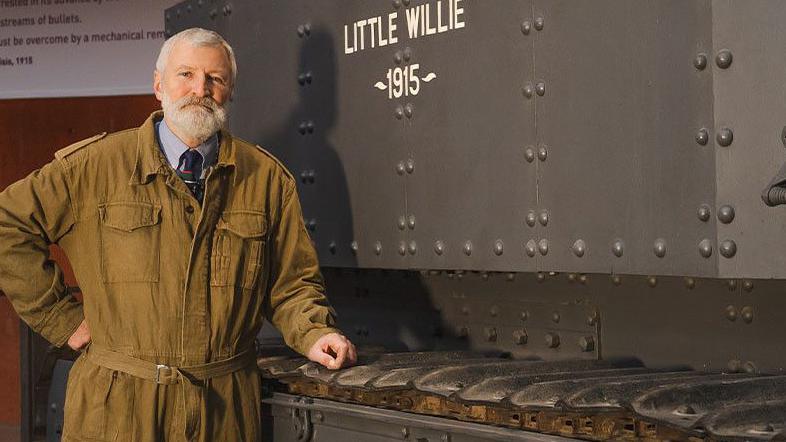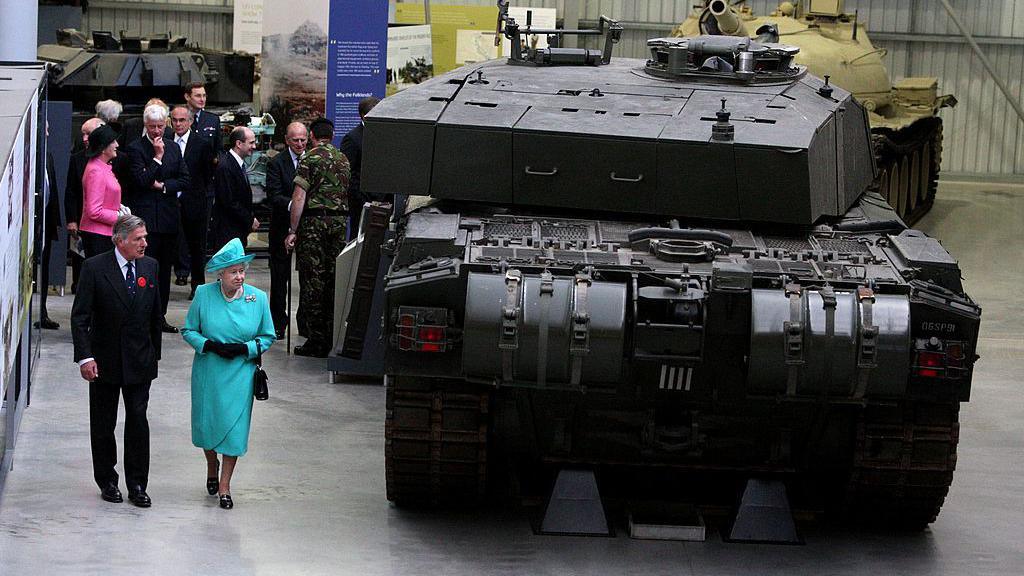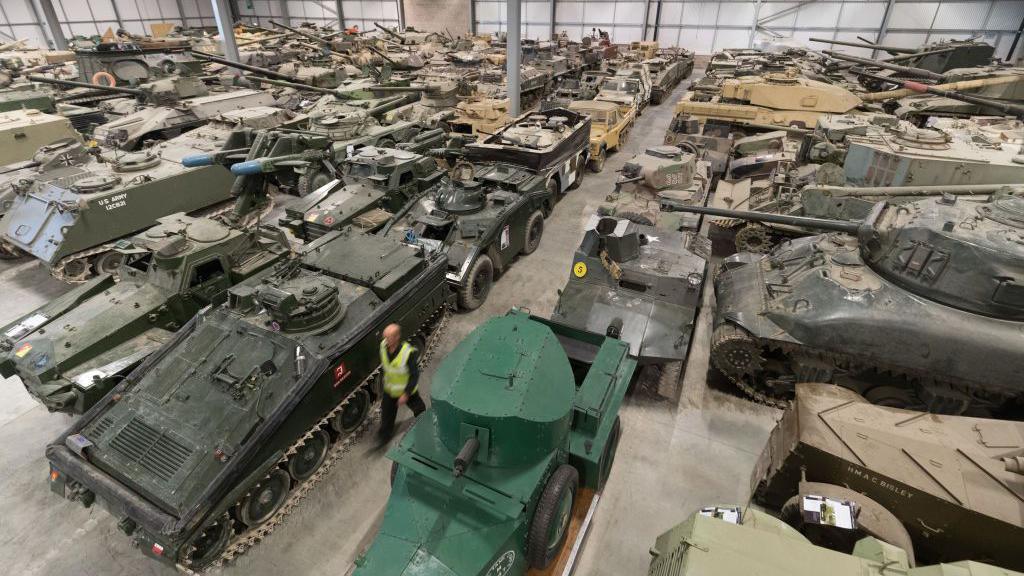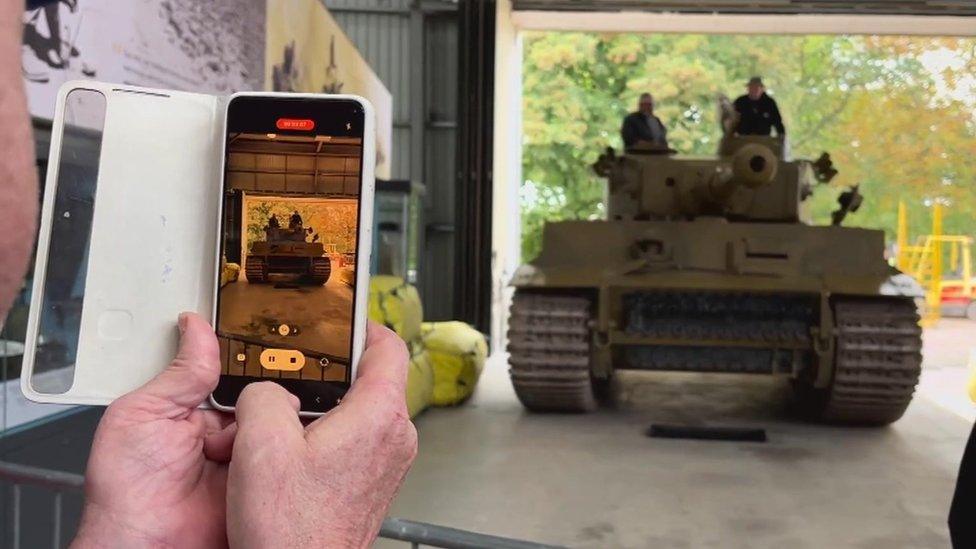'Speaking to veterans was the greatest pleasure'

David Willey has been the curator of The Tank Museum in Bovington for a quarter of a century
- Published
The curator of a military museum who is set to retire after 25 years has said his "greatest pleasure" from the role was speaking to veterans.
David Willey has been the curator of The Tank Museum in Bovington, Dorset, for a quarter of a century.
He said a wide range of people had walked through the museum's doors in that time.
But the veterans who told their stories were the most memorable - especially when their families were there to hear it.
"If you ask that veteran the right questions, I always find it fascinating when you suddenly see the family behind them gathering round because he's suddenly saying things they've not heard him say before," he said.
"Suddenly dad or grandad is talking in a way he's not talked before and that's quite something."

The late Queen Elizabeth II visited the museum in 2009 and was show around by the then director Sir Roger Wheeler.
He said, for that reason, he always encouraged school groups to speak to their relatives about what they had seen while they still could.
"When I was there in 2000 you were still getting coachloads of World War Two veterans on a day out, now it's a major event if you find one," he said.
"I always say to [children] 'for goodness sake, if you've got someone there, it doesn't matter what generation veteran, but go and talk to them for their stories'."

The Tank Museum has grown in popularity in recent years
Mr Willey said he had seen some "big changes" in the Tank Museum in the last 25 years.
He remembered trips to the museum with his dad at the end of the 60s as "a lovely, lovely experience".
"But basically it was a shed full of tanks in rows," he said.
He also remembered there were so few staff at the beginning that "you did everything" - including unblocking the toilets and selling deactivated guns to raise money to buy overalls for workshop staff.
"When you go from that to now, we're a multimillion pound turnover organisation," he said.
"It's quite weird trying to explain to people it's not always been like this."
War in Europe
The museum's most important job for the future, Mr Willey said, was communicating how relevant military history is to the present situation in Ukraine.
"I always worry slightly that we're forgetting there's now a war in Europe... our own contemporary army is having to train for that," he said.
"There's more of a relevance. It's not just that abstract bit of history that we can look back on or make the model about, there's a much more contemporary 'here we go again' moment... when you listen to some of those stories."
Get in touch
Do you have a story BBC Dorset should cover?
You can follow BBC Dorset on Facebook, external, X (Twitter), external, or Instagram, external.
Related topics
- Published15 September 2023
